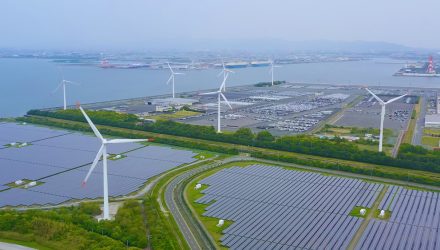The Integrity Council for the Voluntary Carbon Market released a set of guidelines last month that could bring cohesiveness and clearer definition to the often-fragmented, nascent carbon offset market. Though the guidelines are not backed by a regulatory mandate, it is a major step in streamlining the market and will bring added clarity for participants and investors.
The Core Carbon Principles (CCPs) will allow the IC-VCM to evaluate offset projects and programs and attach the CCP compliant label to qualifying offsets.

Image source: Integrity Council for the Voluntary Carbon Market
“The CPPs set broad thresholds for program transparency and governance, robust verification, environmental integrity, adherence to sustainable development goals,” explained Luke Oliver, managing director, head of climate investments, and head of strategy at KraneShares, in the Carbon Market Now blog.
The new guidelines and CCP compliant label should work to help unify and create a baseline across the carbon offset market that is made up of a variety of projects and programs, each with its own method of measuring offset impact and standards.
Looking further ahead, the UN is working towards creating its own regulatory standard for carbon offsets that falls under Article 6 of the Paris Agreement and “will act as a global standard for both countries and interested private sector participants,” Oliver wrote. It’s further regulation in a still nascent industry that will bring clarity and transparency for investors, as well as opportunities.
Investing in the Carbon Offset Market with KSET
Added transparency and a global benchmark created by the CCPs will likely bring increased stability for a complex market place that many investors have chosen to stay away from due to its nascence and the many inherent problems that come with fledgling markets. The creation of the CCP, though not a regulatory mandate, will bring clarity and a guarantee of quality to carbon offsets that might have previously been lacking.
The KraneShares Global Carbon Offset Strategy ETF (KSET) is the first U.S.-listed ETF that offers investors carbon offset investing opportunities and exposure to the voluntary carbon markets. It tracks the S&P GSCI Voluntary Carbon Liquidity Weighted Index, which also offers a first-of-its-kind benchmark for the global voluntary carbon futures market performance that trades through the CME group.
The fund is structured to offer global coverage of voluntary carbon markets by tracking carbon offset futures contracts comprised of nature-based global emissions offsets (N-GEOs) as well as global emissions offsets (GEOs) that trade via the CME group.
As the voluntary carbon markets are a dynamic space, the index is structured in a way that will allow flexibility in re-weighting the securities it tracks. It will also move securities in and out of the index regularly, and it only tracks carbon offset credit futures that have a maturity within the next two years. The index weights the offset futures it tracks by the total value of their traded volume over the last six months.
KSET carries an expense ratio of 0.79%.
For more news, information, and analysis, visit the Climate Insights Channel.

